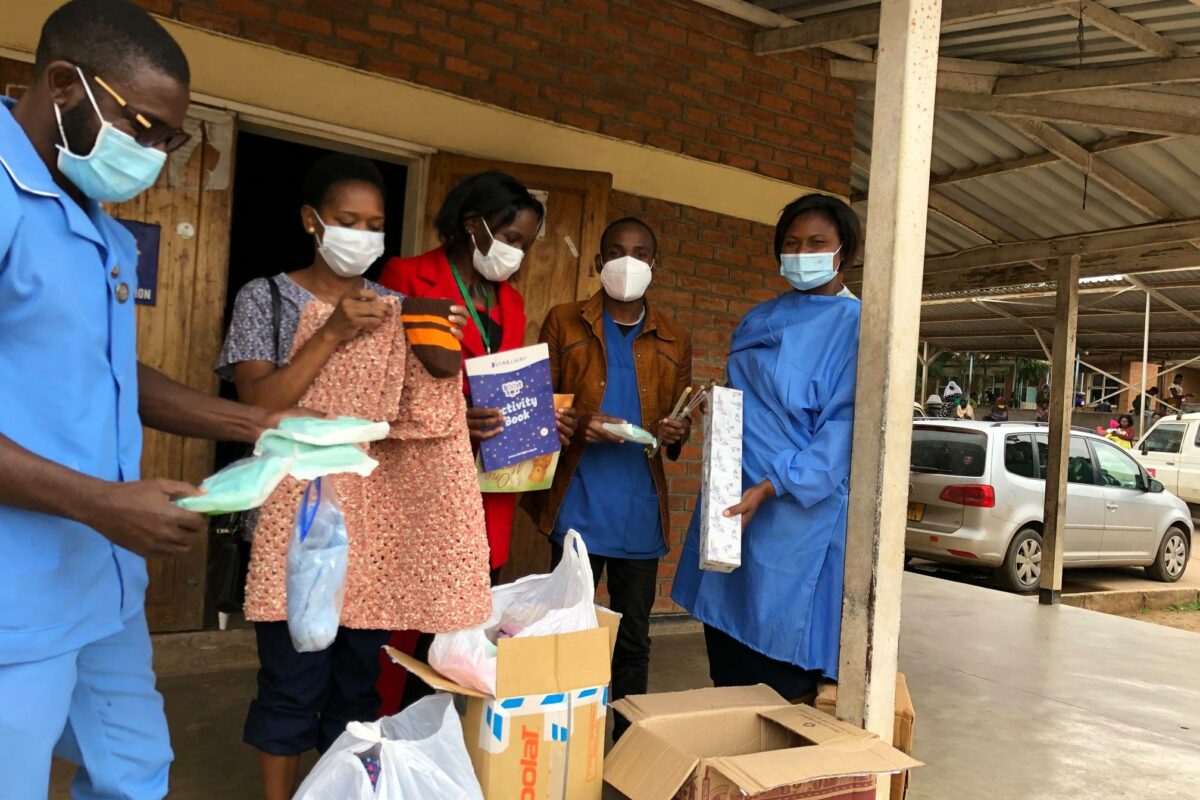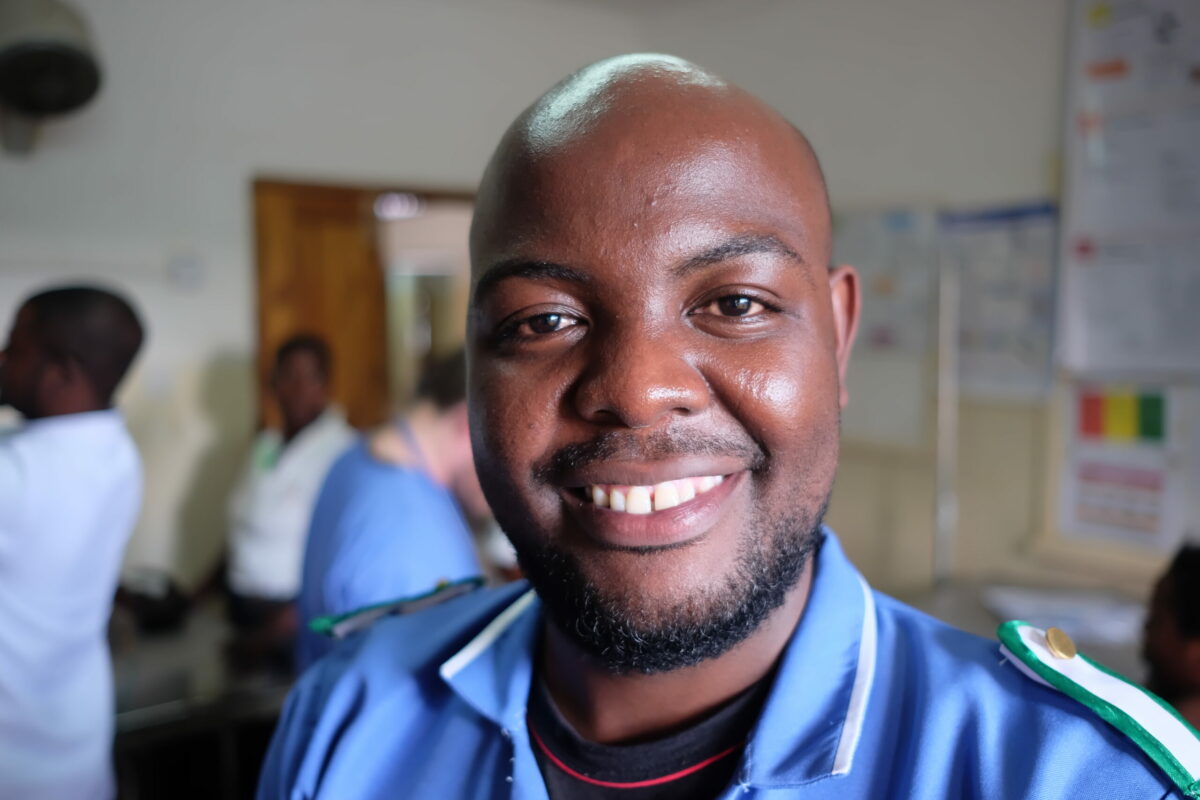Of all the children seen each year at QECH some 26,000 have to be admitted for specialist treatment

Accident & Emergency unit (to be restructured and refurbished to meet the changing demand and needs) which are high dependency unit (to come on stream Spring 2021), medical Bay for chronically ill and neurological problems, special care for the very ill, oncology, orthopaedic, malnutrition treatment, babies born outside hospital, neo-natal with high dependency facility and Kangaroo Care for premature babies.
One Stop Centre for victims of abuse – children, girls and women
Specialist outpatient clinics for HIV care, heart disease, neurological problems, sickle cell disease, TB, renal disease, diabetes, and general paediatrics
(all Blanytre unless otherwise stated)
We currently have; 15 Malawian consultants (5 in Lilongwe and 5 expats), 12 Malawian registrars (1 expat), 21 qualified Malawian Clinical Officers, and 100 students each year (5th year in Blantyre), 121 each year (3rd year in Lilongwe).

| Malawi | UK | USA | |
| Population | 20m | 67m | 328m |
| GDP per cap | £300 $400 | £32,500 $42,300 | £50,000 $65,200 |
| Mortality of under 5s per 1000 births | 42 | 4.3 | 6.5 |
| Life expectancy at birth m/f | 61/67 yrs | 80/83 years | 76/81 years |
| Doctors/Nurses per 100kpop | 4/44 | 280/810 | 260/1450 |
Our biggest causes of death are now in neonates – prematurity and birth asphyxia. We are working hard to improve neonatal care.
| Malawi 2000 | 2020 | UK Current | USA Current | |
| Neonates (under 1 month old) | 39 | 20 | 2.8 | 3.7 |
| Infants (Under 1 year) | 100 | 31 | 3.7 | 5.6 |
| Child (Under 5 years) | 173 | 42 | 4.3 | 6.5 |
| Malawi child in-patient mortality | 1 in 5 | 1 in 20 | 1 in 100 | 1 in 100 |
| Maternal Mortality (per 100,000 births) | 749 | 349 | 7 | 19 |
| Life expectancy (years of age) | 45 | 64 | 81 | 78.5 |
| Male/female | 43/48 | 61/67 | 80/83 | 76/81 |
Data sources include – World Health Organisation; UN Inter-Agency Group; World Bank
It is very pleasing to see the trend of the numbers in Malawi but with still a long way to go and still many challenges ahead.
The care workload is seasonal. The hot rainy months of December to April or May bring such illnesses as malaria, typhoid, cholera, gastro enteritis and malnutrition – all against a backdrop of HIV/AIDS and stunted growth.
The mothers or grannies stay on the wards with their children and do much of the basic care. Little ones may need their mothers for breast milk.

Charity Commission number 1140578 Registered Office: c/o Squire Sanders (UK) LLP, Rutland House, 148 Edmund Street, Birmingham, B3 2JR